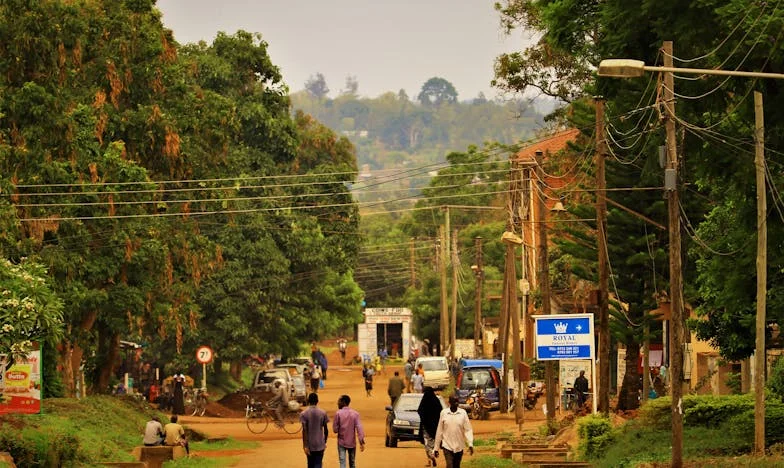Not Like in the Movies, But Almost: My Life in Small-Town Ohio
“You never listen to me, do you, Emily?”
Derek’s voice ricocheted off the cracked kitchen tiles, slicing through the early morning silence. Sunlight struggled through the thin curtains, painting crooked shadows across the floor, and I stood there, clutching my coffee mug like a shield. My hands shook so badly I nearly spilled it. I wanted to scream back, to tell him that I’d listened for ten years and hadn’t heard my own heart in half that time—but I just stared at the faded wallpaper, wishing it would swallow me whole.
God, I used to believe my life could be like the movies. I grew up in Willow Bend, Ohio, a place so small you couldn’t sneeze without someone’s cousin hearing about it. I spent Saturday nights curled up with my best friend, Sarah, devouring melodramas and dreaming of a love that would sweep me away. We mimicked the heroines, practicing dramatic monologues in my mom’s living room, giggling over popcorn. “One day, Em, you’ll have your happy ending,” Sarah always said. I wanted to believe her.
But happy endings don’t come easy in Willow Bend. My father died when I was sixteen, leaving Mom and me scraping by on her paycheck from the grocery store. College was a luxury, so after high school, I stocked shelves and waited for something—anything—to pull me out of the monotony. That’s when Derek strolled in. He was older, always joking, always restless. He made me feel seen, like the lead in my very own movie. When he asked me to marry him a year later, I said yes, convincing myself this was my ticket out.
Except the ticket didn’t take me anywhere new. We moved into a rundown rental, barely different from my childhood home. Derek got a job at the auto shop, and I started working nights at the diner. I told myself we were building something, but the cracks started showing fast. He’d lose his temper over bills or the car breaking down, complaining that nothing ever went his way. I tried to smooth the edges, to be the peacemaker, but I was always failing—too quiet, too soft, too much like my mother.
Conversations became arguments; arguments became silence. He’d disappear with his friends for hours, sometimes whole nights. Once, when I asked him where he’d been, he just laughed and said, “You wouldn’t understand, Em.” Maybe I wouldn’t. Maybe I didn’t want to.
Sarah would visit sometimes, seeing the exhaustion in my eyes. “You don’t have to stay like this,” she whispered during one of our late-night talks. “It’s not your job to fix him.”
“But what if it is?” I shot back, voice trembling. “What if this is all there is for people like us?”
She squeezed my hand, but I could see pity in her eyes. I hated her for it, even though she was right.
Things got worse after I miscarried. I didn’t even know I was pregnant until it was over. Derek barely reacted. He just grunted and went to work, while I sat in the bathroom, staring at the pink tiles and feeling emptier than I’d ever felt. No movie prepares you for the silence after grief, for the way it wedges itself between two people who used to share everything.
One night, after another pointless fight, Derek slammed the door and left. I sat at the kitchen table, tracing circles in the condensation from my glass, wondering if I even recognized the woman I’d become. Was this what I’d wanted? Or was I just too scared to want more?
Mom called the next day, asking if I was okay. I almost told her everything, but the words caught in my throat. She’d spent her whole life surviving—who was I to complain?
But then, one afternoon in late March, Sarah showed up at my door, suitcase in hand. “I’m leaving, Em. I got a job in Columbus. I want you to come with me.”
My heart thudded in my chest. “I can’t just leave. Derek—”
“Derek will survive. What about you?”
I stared at her, at the hope in her eyes, and something inside me cracked. For the first time in years, I imagined a life beyond these walls—a life where I could breathe, where I mattered.
Derek came home early that night, smelling of beer and stale cigarettes. “What’s with the suitcase?” he demanded.
I stood up, hands shaking but my voice steady for once. “I’m leaving, Derek. I need more than this.”
He laughed, bitter and sharp. “You won’t last a week without me.”
I didn’t answer. I just grabbed my coat and walked out into the night, Sarah waiting in her car, engine running. The air was cold, but it tasted like freedom. As we drove away, I glanced back at the only life I’d ever known, unsure if I was strong or just desperate.
Now, months later in Columbus, the city feels too big and I still flinch when doors slam. I work at a bookstore, rent a tiny apartment, and take long walks by the river. Some days, I miss the simplicity of Willow Bend, but mostly I miss the girl I used to be—the one who believed in happy endings.
I wonder sometimes: was it courage that got me here, or just the fear of staying trapped? Do we ever really get to write our own stories, or are we just playing parts handed to us by circumstance?
Would you have left? Or would you have stayed and kept hoping for a different ending?
